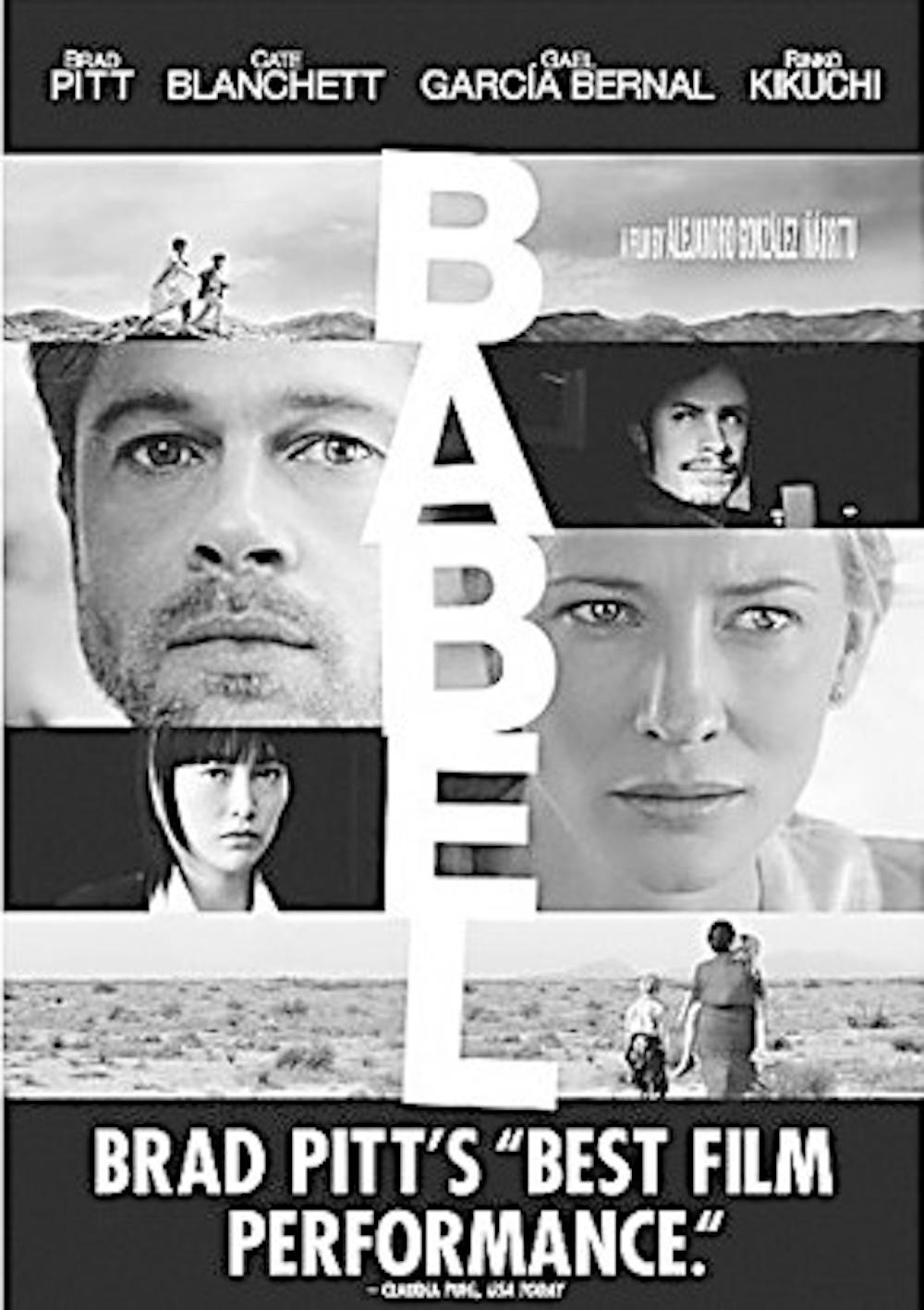Last year was phenomenal for Mexican directors, what with Guillermo del Toro's "Pan's Labyrinth," Alfonso Cuarón's "Children of Men" and Alejandro González Iñárritu's "Babel" all ranking among 2006's top films. Iñárritu's third excellent feature in a row, after the ruthless "Amores Perros" and even more unforgiving "21 Grams," cements his status as one of the most talented directors in the business today, wielding a distinctive style of coarse realism and chronology-shifting, life-connecting narrative. \n"Babel" is a story about communication and more specifically, a fundamental lack thereof between different cultures and peoples on our planet. I kept waiting for Strother Martin to pop up and deliver his famous line from "Cool Hand Luke." Brad Pitt and Cate Blanchett are American tourists enduring a life-and-death situation in rural Morocco, Rinko Kikuchi is a deaf-mute Tokyo teen seeking affection in all the wrong ways with all the wrong people, and Adriana Barraza and Gael García Bernal are Mexicans eventually trapped in a desperate catch-22 with border police. \nThe true stars of "Babel," aside from cinematographer Rodrigo Prieto and Iñárritu, are Kikuchi and Barraza. These women, both nominated for this year's Best Supporting Actress Oscar (which they unfortunately lost to Jennifer Hudson), give performances that will break your heart. Kikuchi gives the most emotive performance I've ever seen from a person with no audible lines, and Barraza's plight elicits chills in the film's climactic scenes. "Babel's" ultimate message seems to be that humans need to learn to communicate with one another more effectively or else, and Kikuchi and Barraza's characters are embodiments of the sadness, confusion and tragedy the lack of communication -- whether biological or mandated by law -- can render. \nThat glaring F you see for a supplements grade is there because there are no supplements on this one-disc edition, prompting the immediate questions of why and whether a more definitive edition is on the horizon. Let's assume that Iñárritu and Paramount wanted to let the film speak for itself and ignore the possibility that there was a strategic play to get the disc on shelves before Oscar night. "Babel" is the kind of expansive, emotionally exhausting work that wouldn't have needed any such help in the Best Picture race. \nIn an advertisement for British Telecom, theoretical physicist Stephen Hawking once said that "mankind's greatest achievements have come about by talking and its greatest failures by not talking." Assisted by Prieto's remarkable cinematography, Iñárritu's assured direction and another fine, slow-building score by Gustavo Santaolalla, the entire cast of "Babel" bring an immediacy to their predicaments that makes this a pertinent story not just about the state of their characters, but about our world and its stubbornly incommunicative condition.
¡Viva Iñárritu!

Get stories like this in your inbox
Subscribe





